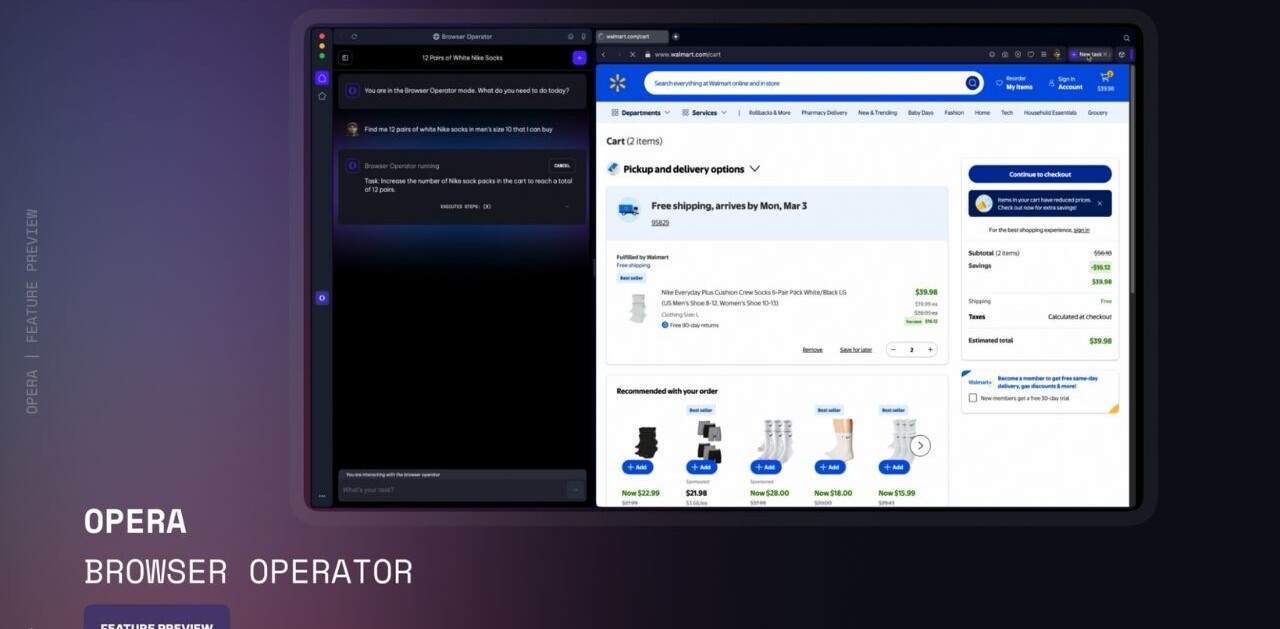
For much of the 21st century, software development has been an attractive career option. Now, however, there are perceived threats on the horizon as new tools seem set to fill the software development skills gap.
Generative AI models are evolving quickly with the ability to generate functioning code from a few text prompts. Meanwhile, no-code and low-code tools and services — which offer people with minimal or even no development skills the ability to design and manipulate their own software applications — are becoming more sophisticated and widespread. Gartner predicted in 2021 that, by 2025, as much as 70% of new applications will be developed using low-code or no-code technologies.
Generally speaking, these technologies are more likely to augment how software development is done than completely displace this work, but their adoption could still see some unwelcome changes from the sector’s heyday.
Software developers may be expected to do more with less, and early-stage workers may be seen as less valuable and replaceable by anyone with basic skills who can leverage these new automations. Small companies with smaller budgets may even lean more on no-code tools and generative AI and be less likely to create new opportunities for developers.
In other words, while software developers are still needed, demand may not continue to grow at its previous pace, and this may come with a decrease in salaries and benefits as the market becomes less competitive.
But there are ways software developers can continue to secure high-paying roles as their career evolves.
1. Learn a high-paying language
Not all programming languages are created equal. Some are more commonly used, and some are in higher demand in the job circuit. According to Indeed, the highest-paid programming languages are Java, C#, JavaScript, Python, C++, SQL, Rust, Scala, and Elixir.
Each of these will have different applications and use cases, so developers can select the language best suited to the industry they’re interested in. It’s also important to be familiar with a range of supporting frameworks.
This software developer role in Union Tank, for example, requires several years of practical experience with Java alongside knowledge of popular Java frameworks such as Spring, Hibernate, and JavaServer Faces.
2. Learn to work alongside AI
AI will have a significant role to play in the future of software development, so familiarity with new generative AI tools and how they intersect with the work of software development is essential.
This C++ developer role at Websale, for example, involves working with tools such as ChatGPT and CoPilot. Those who stay ahead of the curve and learn how to best harness these tools, rather than rail against them, are likely to become the new standard-bearers of the sector.
3. Specialise in cybersecurity
According to an analysis of the average salaries of cybersecurity specialists recorded by the Economic Research Institute, 10 of the top 15 highest-paying countries for cybersecurity jobs are in Europe. At the top of the list is Switzerland, where the average salary in cybersecurity is more than $150,000 per year.
Security software developers need to add highly specialised skills to their development knowledge, but this is a career investment that could pay off massively in the long run. According to the World Economic Forum’s most recent Future of Jobs report, cybersecurity is a key growth area with a widening skills gap.
4. Take the reins with product management
Bill Gates started his career as a software developer. Though he founded Facebook before he even finished college and started a career, Mark Zuckerberg’s entrepreneurial roots are certainly in software development.
The trope of the software-developer-turned-entrepreneur continues today, and, if becoming your own boss and leading your own business is something you’d like on your career roadmap, consider a pivot to product management. These roles are often considered as ‘mini CEOs’ because of their broad base of skills, deep product knowledge and involvement, and cross-departmental interactions.
That journey can begin in a software development role where you take the lead on common product management practices. For example, this senior Java developer role in SMA Solar Technology includes managing Agile development teams.
5. Develop your leadership skills
Experience is highly valuable in the job market, but it can only come with time. To accelerate your salary progression, you’ll need to demonstrate that you aren’t just a team player, but a team leader. As with any career, team leads and heads of development will earn more than the employees reporting to them, and skillful leaders are scarce. Leadership and social influence are among the top rising skills cited in the World Economic Forum Future of Jobs report.
Of course, with a salary often second only to the CEO, the top position to aim for is CTO. Start with taking on senior development roles with more responsibility for project delivery and mentorship, such as this C# role at Moldino Tool Engineering.
You can also seek out positions at companies that will support your continuing professional development. For example, Mazars advertises its development and training opportunities and financial support for relevant qualifications in this posting for a cloud software developer.
If you’re looking to take the next step in your software development career, check out some of the roles available now on the House of Talent Jobs Board
Get the TNW newsletter
Get the most important tech news in your inbox each week.





